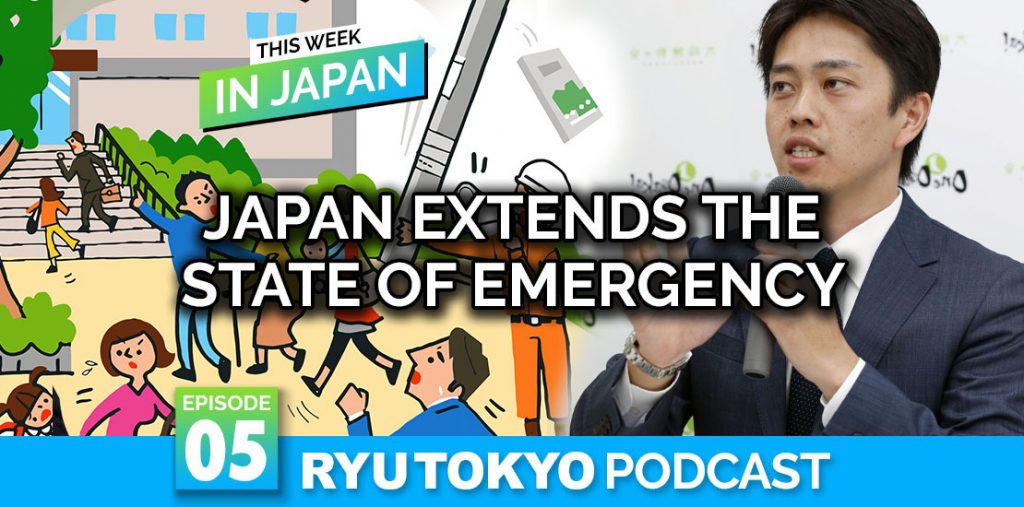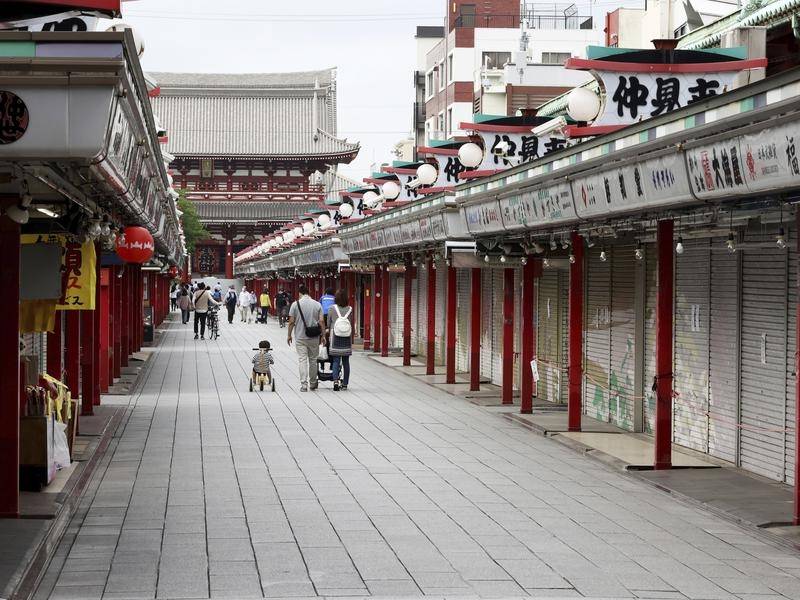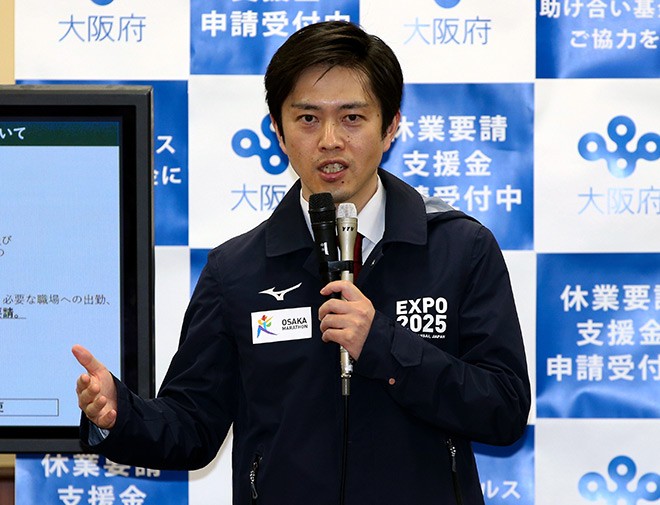Japan extends the state of emergency while more people take independent action to end Corona.

Listen to Ryu Tokyo Podcast Episode 5 here:
1. Japan Extends State of Emergency
On Monday, May the 4th, Prime Minister Abe Shinzo spoke on the current condition of the economy and the Corona virus within Japan. As for now, the state of emergency has been extended throughout the country. During the conference, he stated that due to the extended effects of people staying indoors, industries such as restaurants need to be supported and that measures to help part-time workers and students will be taken. Many restaurants have either cut their operating hours or simply closed down under the state of emergency. With the current practice of jishuku, or self isolation, still being strongly encouraged, the restaurants and businesses that do remain open have had to face the reality of low customers. This is leaving many part-time workers with severely cut hours or, in other cases, no job at all.

Abe Shinzo went on to state that it is under these strict conditions a “new regular” must be created, which involves being prepared for a long battle. The government plans to re-evaluate the condition of the virus and will consider undoing the state of emergency depending on the results. The evaluation is scheduled for the 14th of this month. In the meantime, many citizens are curious as to the specifics behind the “the lifestyle” that the prime minister mentioned. Twitter users expressed mixed opinions on their takes of a new lifestyle and if it could be properly implemented with many citizens going out as usual.
2. Osaka Implements Concrete Rules for Economic Reopen
The governor of Osaka is gaining popularity for his clarity regarding an economic reopening. Governor Yoshimura Hirofumi has stated that because the government has failed to give exact numbers or details for what can constitute a reopening, they will be going by the newly created “Osaka Model” to decide. This model is made of three conditions that must all be fulfilled for seven days in a row to qualify for more open conditions. The first condition is that the number of new cases with an unclear point of infection must be under ten. The next is out of everyone tested, the positive rate of infection must fall under 7%. Finally, the rate of occupancy for hospital beds for patients with severe symptoms must stay under 60%.

With these rules in place, the government of Osaka will continue to ask people to refrain from going out and for business and sports centers to remain closed until the end of the month unless all conditions are satisfied. Governor Yoshimura`s wording on the government`s actions did not sit well with some of Prime Minister Shinzo`s cabinet, specifically minister Yasutoshi Nishimura, in charge of virus containment measures. Yatsutoshi pointed out that the responsibility of lifting the state of emergency falls on the prefecture governments. Governor Yoshimura soon apologized via Twitter, but not without pointing out that the government should offer a strategy since it also decided to extend the state of emergency.
3. Teenager Combats Corona with App
A young Tokyo teen has developed a tracking app to help pinpoint corona breakouts. Named for the word footprint in Japanese, Ashiato, created by 16-year-old Syu Kato, is an app that uses GPS tracking to record where a person has visited. Should someone contract the Corona virus, the app can be used to accurately track where they have traveled for the past several months and inform others that they may have come in contact with. This would also provide vital data to government authorities who are trying to limit infections.

One of the biggest obstacles the world is having right now is tracking and containing the spread of the virus. This app can measure up to 10 meters within a location someone has traveled. While creating an app of this magnitude is impressive enough for a 16-year-old teen, Syu Kato already has quite a reputation. He created a book report writing program when he was in the 6th grade. He has also developed a program to simplify programming in order to teach children how to write code.
4. FaceTime with Shy Eels to Keep Them Company
This week the Sumida Aquarium in Japan held an interactive event that allowed people to FaceTime with their garden eels. The aquarium is currently closed to the public, and the eels are starting to become shy and hide from people. To keep them used to the presence of humans, the Sumida Aquarium asked for people`s cooperation to keep the eels company. After contacting the provided email address, successful applicants would be put on a FaceTime call so that the eels can see the people as well.

Garden eels typically keep around half of their bodies buried in the sand, and quickly retreat underground when they feel threatened. The aquarium asked that participants should not shout at the eels, but encouraged hand waving and other gestures. Unfortunately, for those wishing to FaceTime with these cute eels, the event has ended for now. However, with the extension of the state of emergency there is a possibility of the aquarium having another similar event for their animals.
5. Earthquake Alarms Are Too Alarming?!
A recent earthquake in Chiba prefecture has triggered a number of complaints about the earthquake alert sound that people received. While the medium-sized earthquake, around a 4.6, occurred in Chiba prefecture, millions of people in Japan received the very loud and very scary warning siren from their phones. People in Tokyo, who reportedly felt little to no shaking at all, were more shocked at the ominous and sudden siren that burst from their phones without warning.
After the alert, many people began to express how much anxiety the current alarm sound induces, and that this time the alarm was scarier than the actual earthquake itself. Since then, there have been a number of requests to change the sound, or at least the volume, in order not to frighten as many people next time.A loud and attention-grabbing alarm is certainly vital in an emergency, but causing people to panic is the last thing an alert should do.
Related Articles
This Week in Japan #35 (December 11th)
This week in Japan an unexpected Nintendo item becomes a collectable, Tokyo aims to eliminate gas cars, Demon Slayer wins out over parents, and more big news stories!
This Week in Japan #34 (November 27th)
This week in Japan, the Go-To Travel campaign is suspended, former Nissan Motor chairman Carlos Ghosn’s arrests found “illegal” by U.N. council, and more big news stories!





